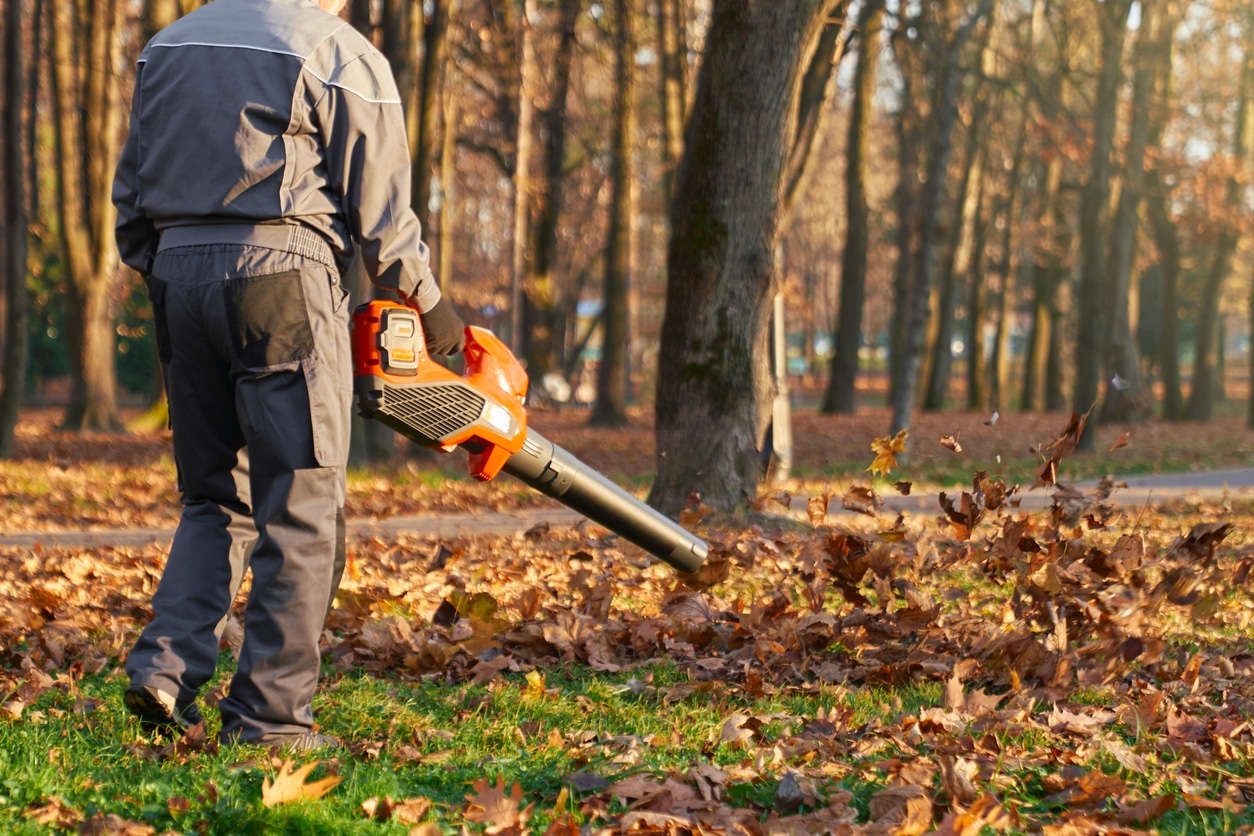Watching the leaves turn red, orange and yellow while sipping a hot maple butter latte from Likewise Coffee is the perfect fall day. But once every last leaf has dropped, it’s time to clear them out.
Left on their own, fallen leaves can slow spring growth, develop mold and clog storm drains. Before you get out your leaf-blower, let’s look at how yard work can damage your hearing and how you can protect it for healthy ears and a happy lawn.
How Loud Yardwork Can Damage Hearing

Prolonged exposure to any sound at or above 85 decibels (dB) can damage your hearing. The louder a sound gets, the faster it causes damage. Two typical fall noise sources include:
- Leaf blowers. If a neighborhood leaf blower has ever woken you up a little too early in the morning, you know that they can get pretty loud. Leaf blowers are even louder for those using them, often exceeding 100 dB.
- Chainsaws. Some people use chainsaws to cut down dead trees or chop fallen branches. While more convenient than an axe, chainsaws can reach 125 dB.
These noisy machines don’t mean you have to let leaves and branches take over your yard. With a few simple tips, you can protect your hearing without sacrificing a pristine lawn.
Tips To Protect Your Hearing
Take a few of the following precautions to protect your hearing this fall:
- Wear hearing protection. Earplugs or earmuffs dampen the force of noise as it hits your ears, lessening the likelihood of hearing damage.
- Choose quieter equipment. Gas-powered tools tend to be louder than electric or battery-powered options. If you’re able to make the switch, swap out your old, noisy tools for their quieter counterparts.
- Go analogue where possible. Raking is near-silent compared to gas or electric equipment. If you have a smaller yard, consider using a rake and other non-automatic tools to protect your hearing.
- Don’t listen to music. Sound is compounding. If you’re using a chainsaw and blaring music through a speaker or pair of headphones, you double your risk of hearing damage. Instead, wait until you’re not using loud tools to listen to your music.
For more information on protecting your hearing or to schedule a hearing test, contact SoundLogic today.